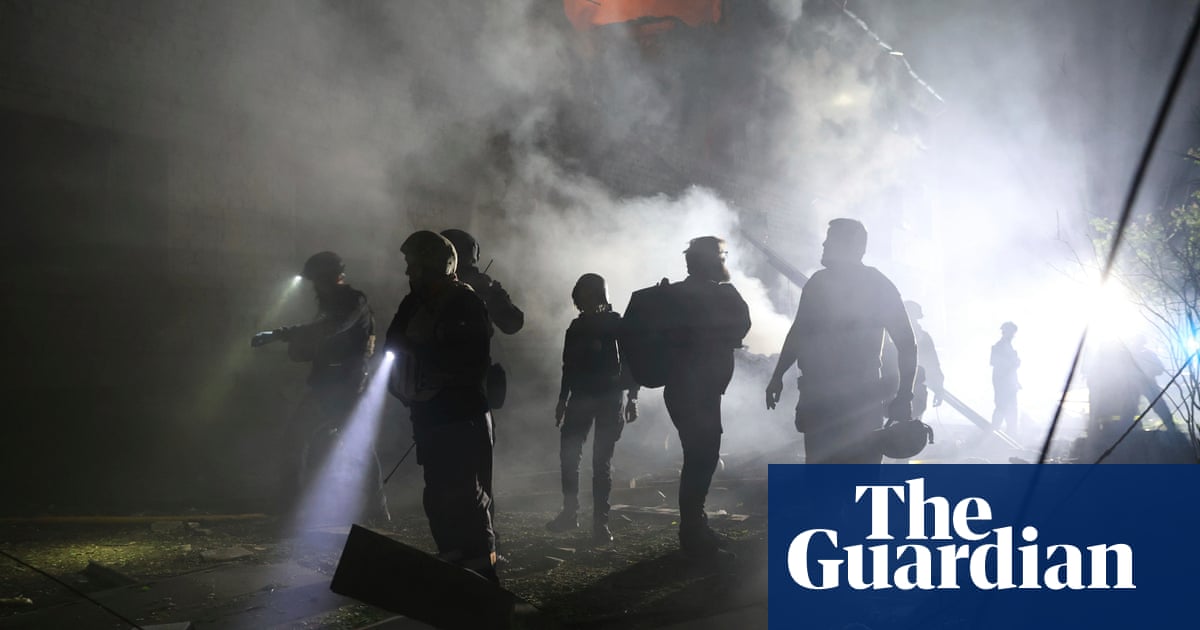Ukraine’s president, Volodymyr Zelenskyy, has hailed the long-discussed minerals deal with the US as“historic”, and suggested it had been much improved during those talks to now become “an equal partnership”. In his nightly address, he said: “The agreement has changed significantly during the preparation process. It is now truly an equal partnership – one that creates opportunities for substantial investment in Ukraine, as well as significant modernisation of Ukraine’s industries and, equally importantly, its legal practices.” He said the deal was the result of a “meaningful meeting” with Donald Trump at the Vatican on the fringes of Pope Francis’s funeral service and that he looks forward to the further results arising from that meeting.
Ukrainian analysts have noted that Kyiv has apparently been able to extract some major concessions, despite Donald Trump’s repeated claim that Ukraine “has no cards” to play. “Ukraine held the line. Despite enormous pressure, every overreaching demand from the other side was dropped. The final deal looks fair,” Tymofiy Mylovanov, president of the Kyiv School of Economics, wrote on X. Notably absent from the final text was the insistence that Ukraine should repay previous military US assistance via the deal, something Trump has previously repeatedly demanded.
The Kremlin was silent on Wednesday’s agreement,but former Russian president Dmitry Medvedev claimed it meant Trump had “broken the Kyiv regime” because Ukraine would have to pay for US military aid with mineral resources.
The deal will show the “Russian leadership that there is no daylight between the Ukrainian people and the American people, between our goals,” US treasury secretary Scott Bessent told Fox Business Network in an interview. “And again, I think this is a strong signal to the Russian leadership, and it gives President Trump the ability to now negotiate with Russia on even a stronger basis,” he said. His remarks appeared to send a signal to Russia that Washington remains aligned with Kyiv despite question marks over its commitment to its ally since Trump’s return to power upended US diplomacy.
The Trump administration will approve its first sale of military equipment to Ukraine since Trump took office, in an indication that theminerals deal signed by the two countries this weekmay open a path to renewed weapons shipments. The state department has certified a proposed licence to export “$50m or more” of defence hardware and services toUkraine, according to a communication sent to the US committee on foreign relations. Trump paused all Ukraine-related military aid shortly after taking office.
The state department announced a 30-year veteran of the foreign service to run the US embassy in Kyiv “during this critical momentas we move toward a peace agreement to stop the bloodshed”. The appointment of Julie Davis, now the US ambassador to Cyprus, was announced the day after the minerals deal was signed. She has previously served as ambassador to Belarus and deputy ambassador to Nato. She replaces Bridget Brink, who announced she was leaving the post last month as the Trump administration pushed ahead with plans for peace talks that many believed favoured Moscow.
French foreign minister Jean-Noel Barrot said on Thursday that the European Union was preparing a 17th round of sanctions against Russia, describing Vladimir Putin as the “sole obstacle” to peace in Ukraine. The 27-nation bloc has hit Russia with multiple rounds of sanctions in response to its invasion of Ukraine and said earlier this year that it would not lift them before the “unconditional” withdrawal of Moscow’s forces from its neighbour. “We Europeans will accompany this American [sanctions] initiative with a 17th package of sanctions and I committed yesterday to [US senator] Lindsey Graham that we would try to coordinate both the substance and the timing of these two packages of sanctions,” Barrot told AFP in an interview.
A Russian drone attack late on Thursday set buildings ablaze in Ukraine’s south-eastern city of Zaporizhzhia, injuring 14 people, but causing no deaths, regional governor Ivan Fedorov said. Fedorov, writing on the Telegram messaging app, clarified earlier casualty figures, saying a report that one person was killed had proved to be untrue. One man buried under rubble had been pulled out alive, he said. Nine people were being treated in hospital.Fedorov said Russian forces had made at least 10 strikes on the city, targeting private homes, high-rise apartment buildings, educational institutions and infrastructure sites.
